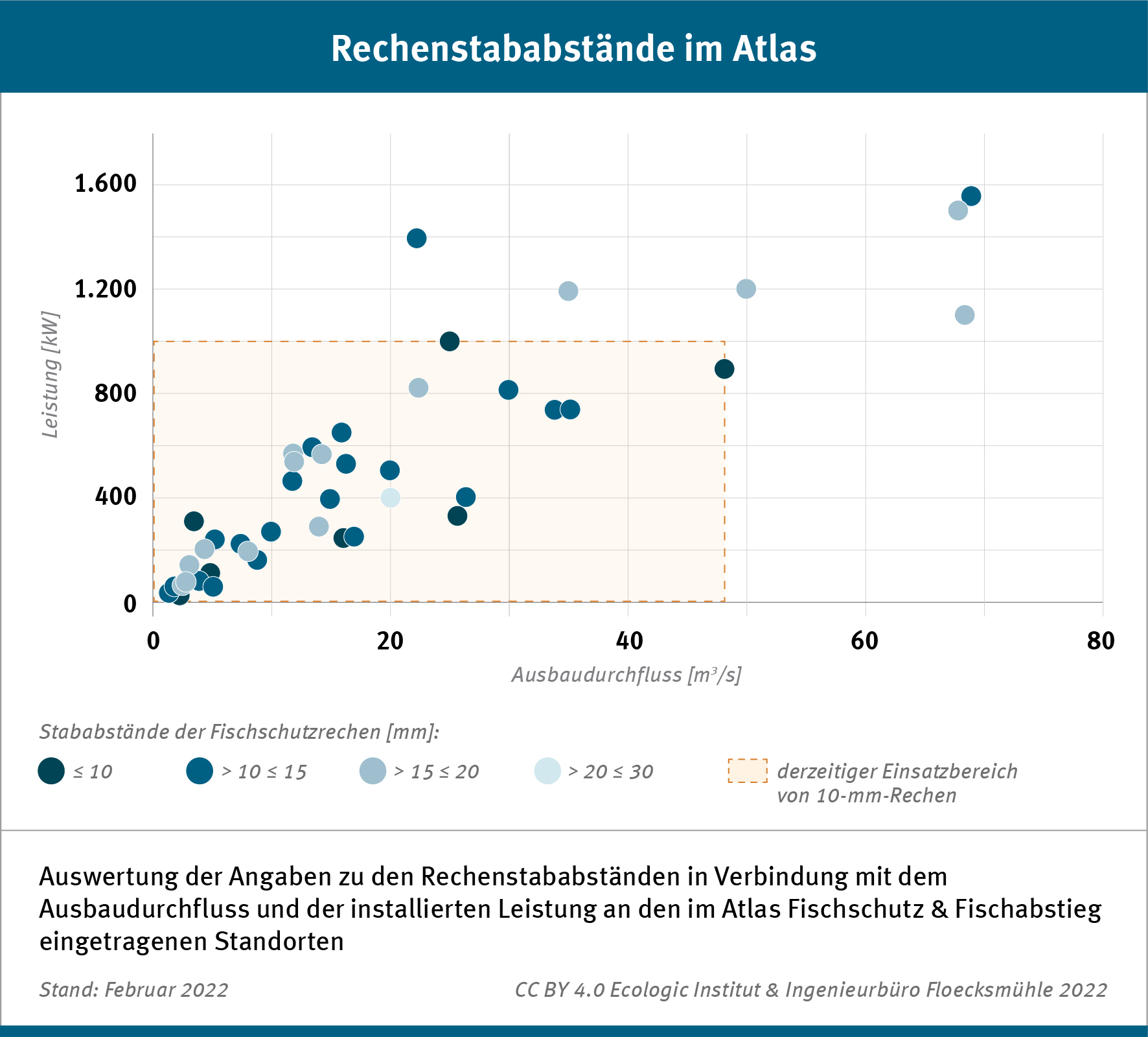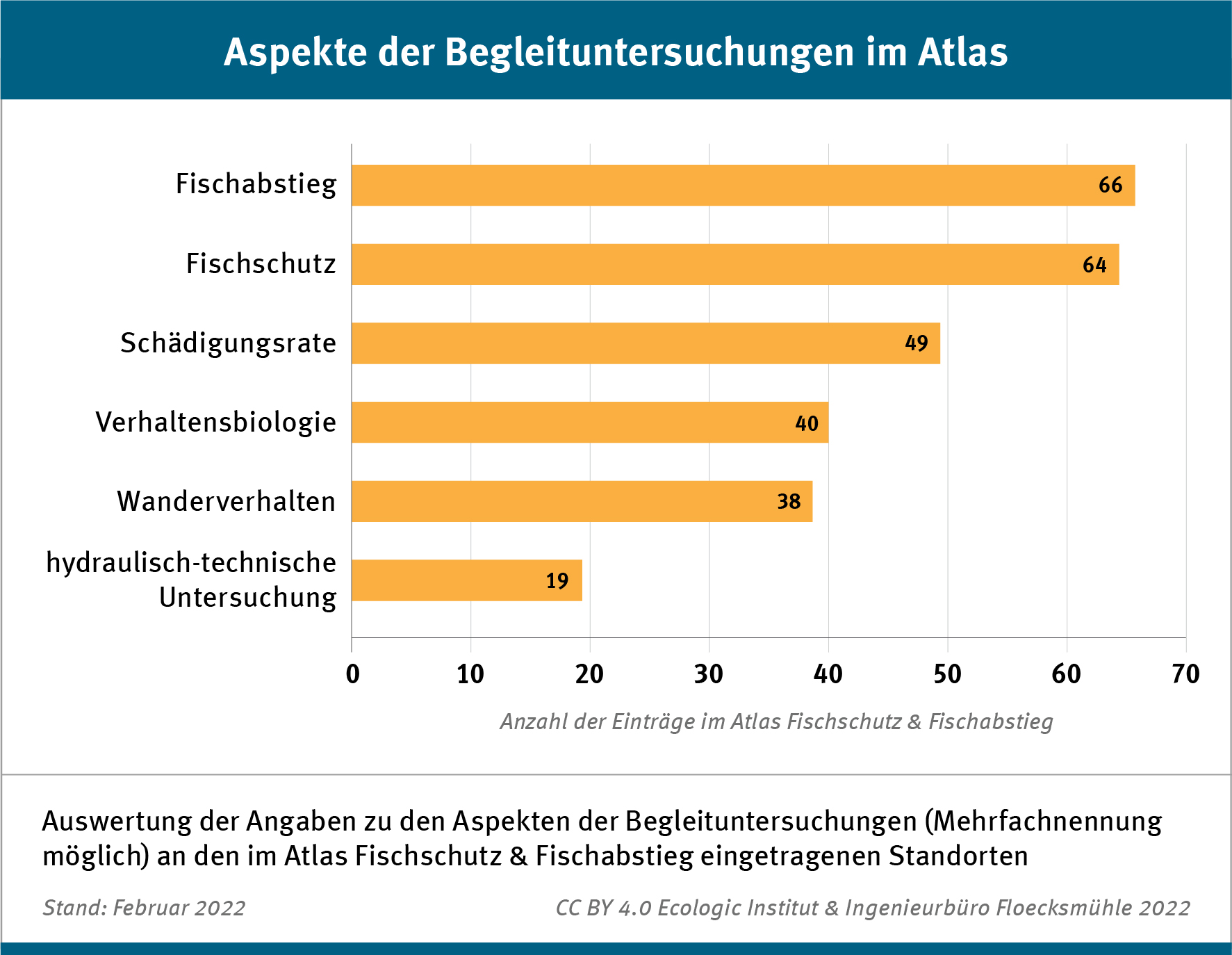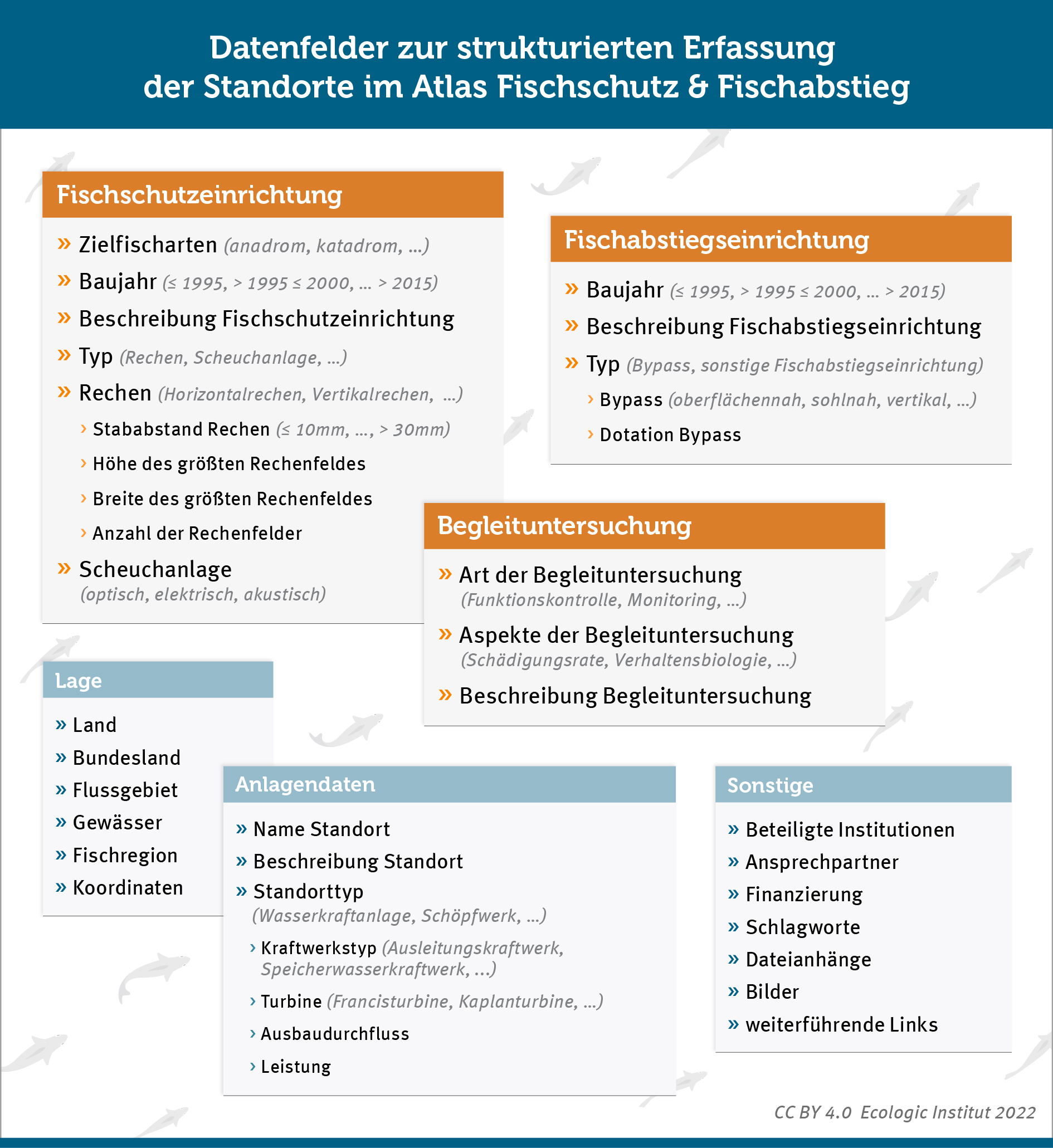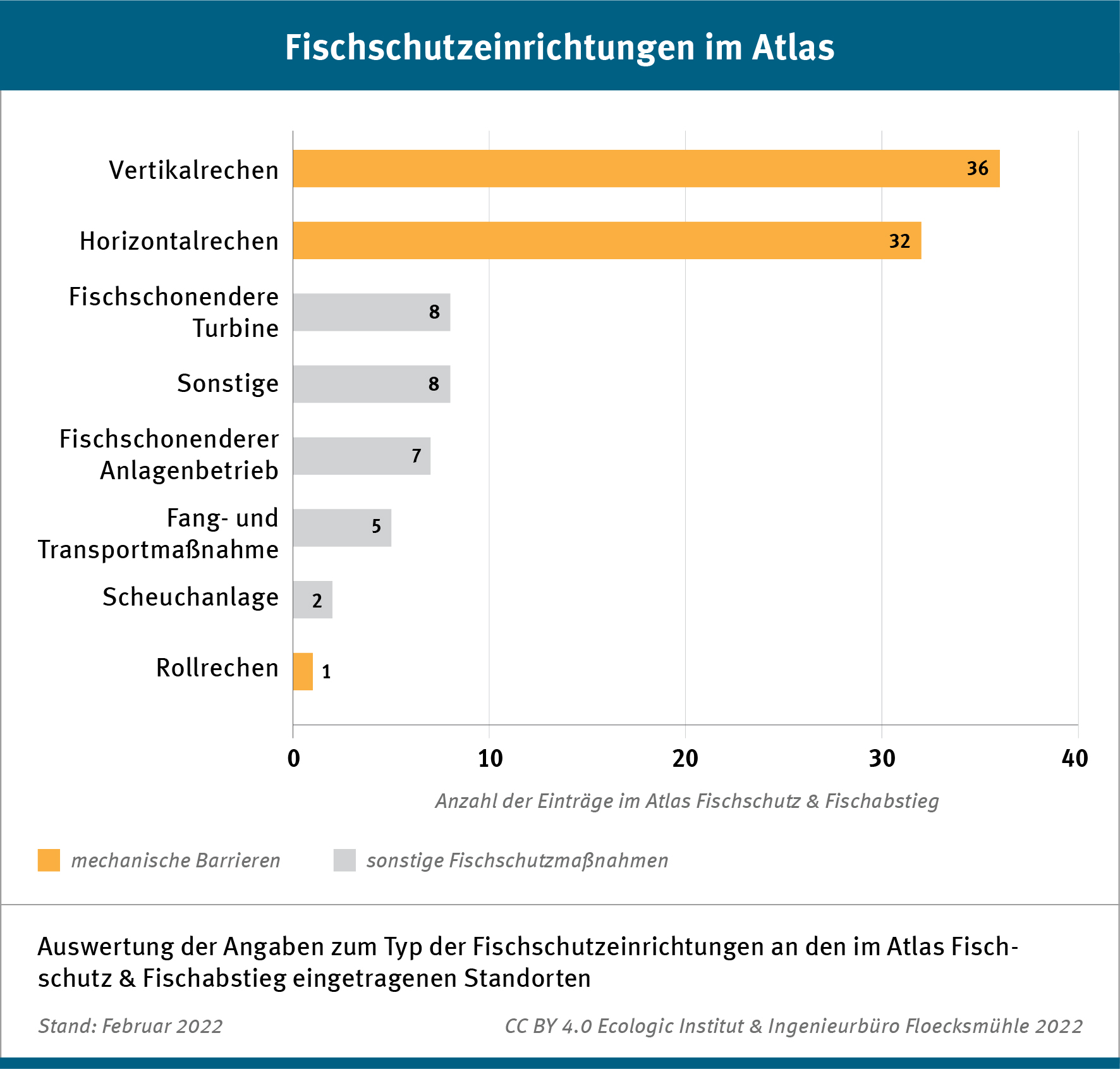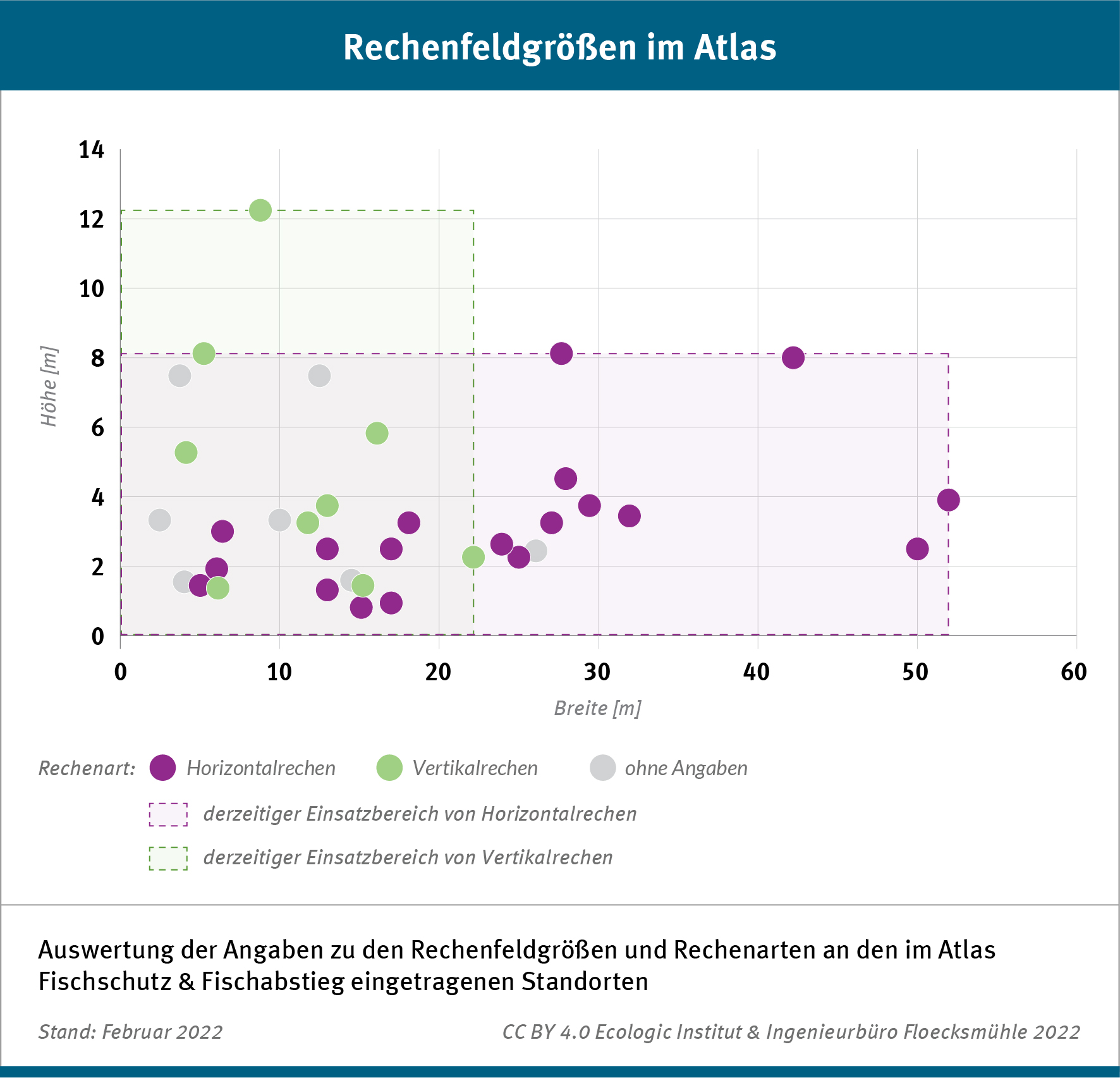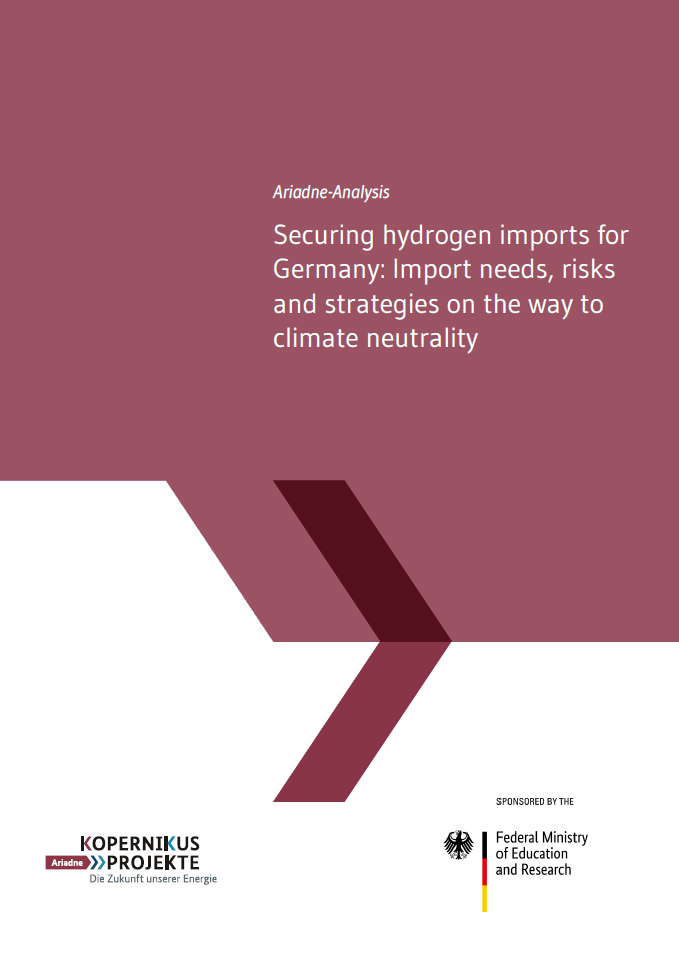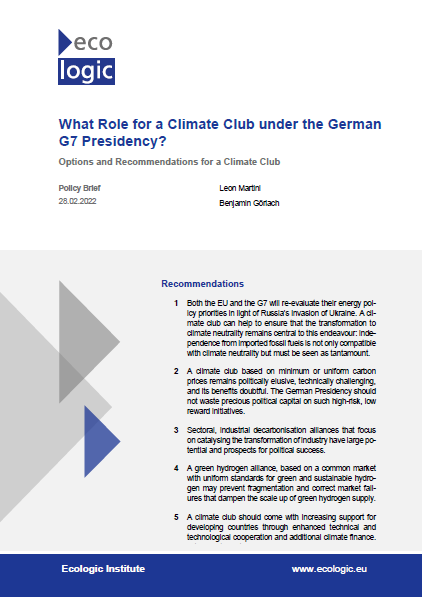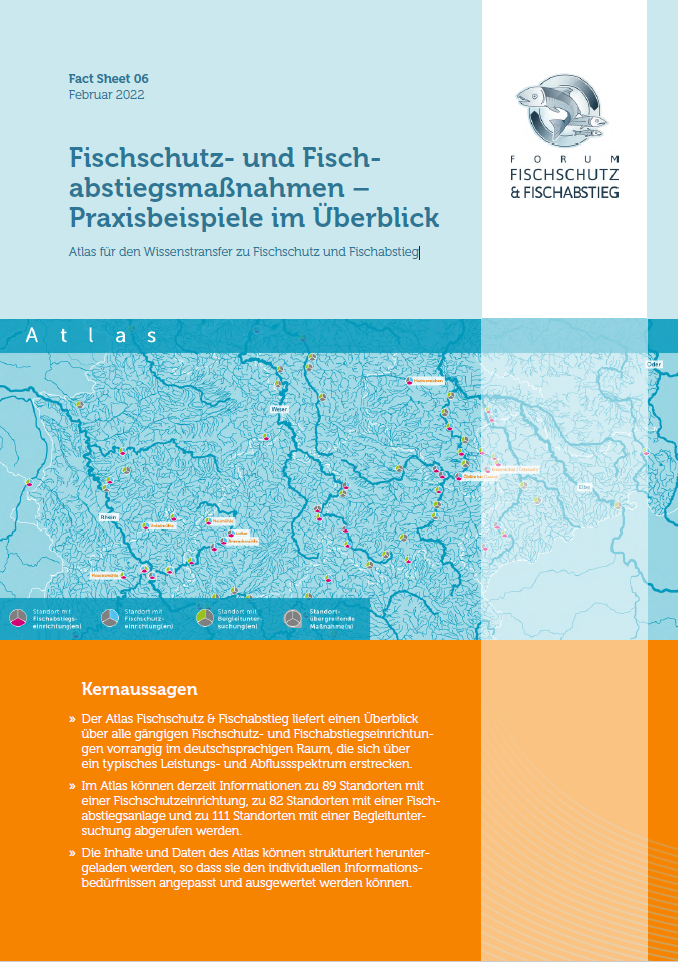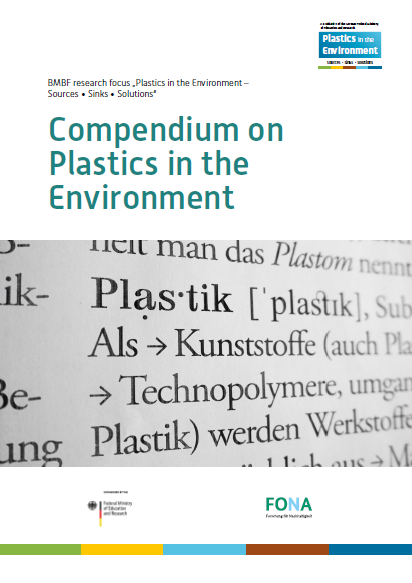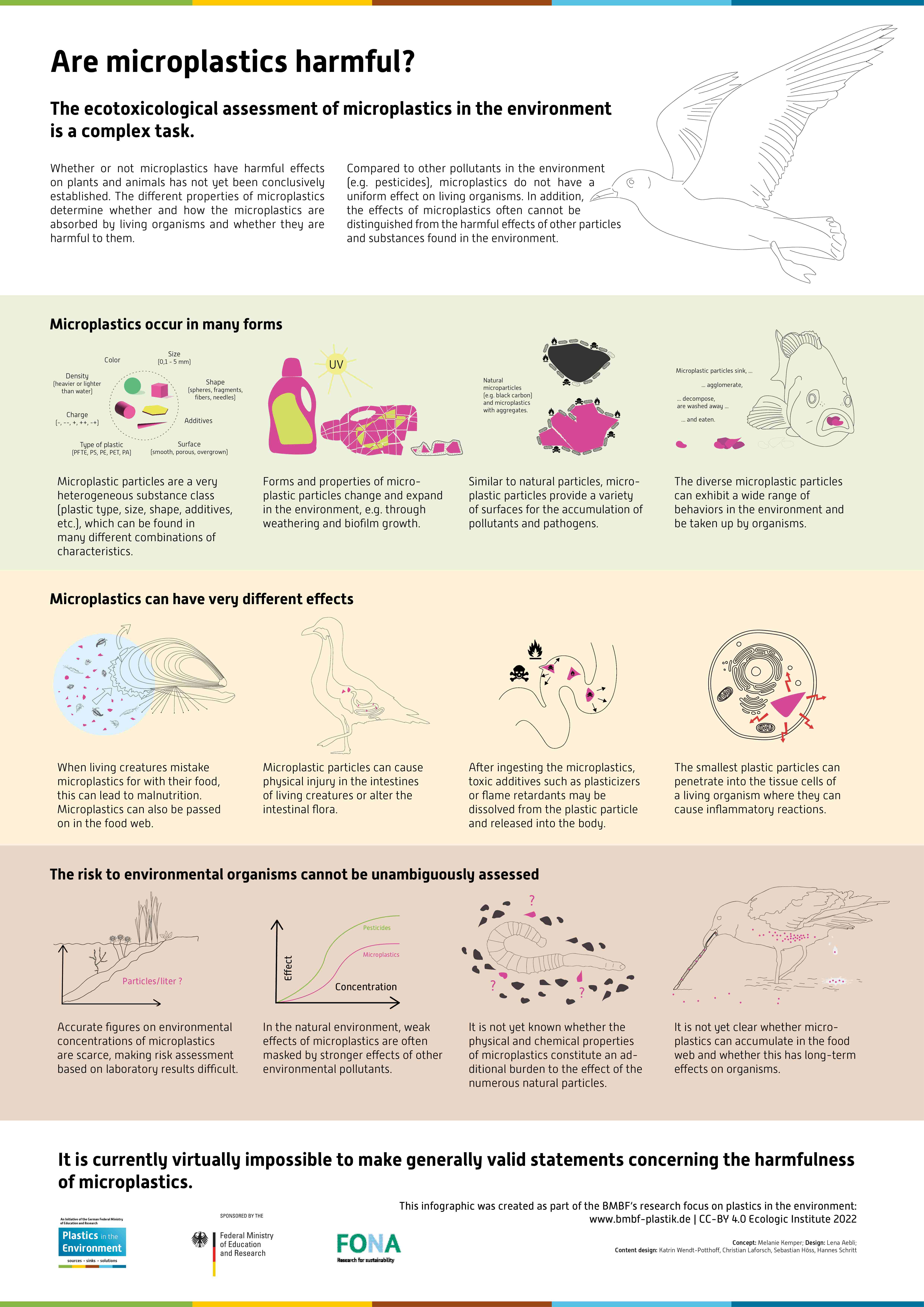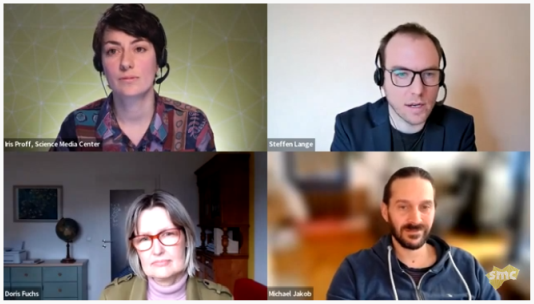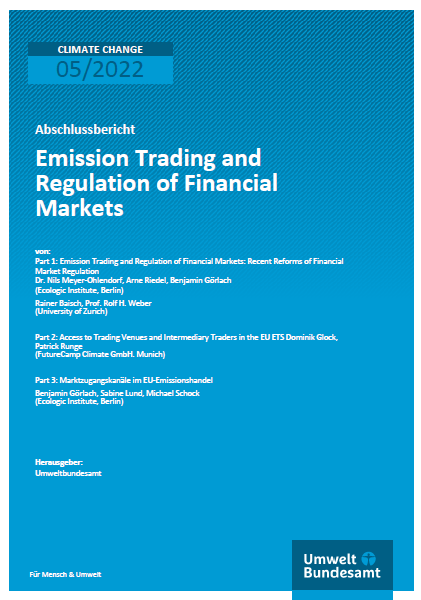Publication:Infographic
Publication:Infographic
Publication:Infographic
Publication:Infographic
Publication:Infographic
Event:Digital Event
Presentation:Chairing
Publication:Report
Publication:Policy Brief
What Role for a Climate Club under the German G7 Presidency?
Options and Recommendations for a Climate Club
Year
Read morePublication:Fact Sheet
Fischschutz- und Fischabstiegsmaßnahmen – Praxisbeispiele im Überblick
Atlas für den Wissenstransfer zu Fischschutz und Fischabstieg
Year
Read morePublication:Brochure
Publication:Infographic
Are Microplastics Harmful?
The ecotoxicological assessment of microplastics in the environment is a complex task
Year
Read morePresentation:Panel discussion
Publication:Article
Publication:Report
